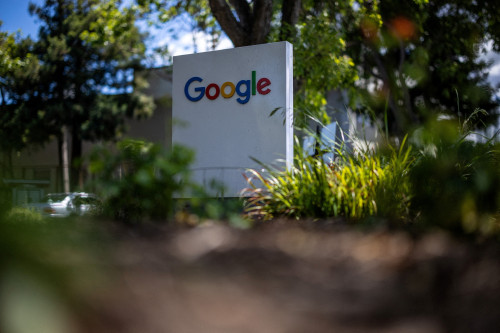By Foo Yun Chee
BRUSSELS (Reuters) -Alphabet’s Google said it failed this week to resolve disagreements with hotels, airlines and specialised search services such as Skyscanner over how it presents search results, putting it at risk of a hefty European Union antitrust fine.
The U.S. tech giant held a July 7-8 workshop with critics to address EU antitrust charges of unfairly favouring its own services such as Google Shopping, Google Hotels and Google Flights over competitors.
The landmark Digital Markets Act seeks to rein in the power of Big Tech, with violations subject to fines as much as 10% of a company’s global annual revenue.
Google offered two options at the workshop, likely the last of several before the commission issues a decision on the company’s compliance in the coming months. In both options, vertical search service (VSS) such as Skyscanner, Kelkoo and Booking.com would get a box at the top of the search page while hotels, restaurants and airlines would be ranked below them.
“Competing interests continue to pull us in different directions,” Google’s lawyer Oliver Bethell wrote in a blogpost on LinkedIn on Wednesday.
“While we have invited feedback throughout this process, we now need to bring this debate to an end without the interests of a few being prioritised over the millions of people and businesses in Europe who benefit from Search.”
Skyscanner said Google’s proposals need more work.
“The latest options on the table introduce significant changes, some of which risk misleading consumers and cementing Google’s position at the top of organic results,” its CEO Bryan Batista told Reuters.
Thomas Hoppner, a lawyer at Geradin Partners who advises some of Google’s complainants, was equally critical.
“Google is shifting the focus to alleged tensions between direct suppliers and intermediaries, diverting attention from the root issue: its own non-compliance, which created these tensions in the first place,” he said.
(Reporting by Foo Yun Chee; Editing by Richard Chang)


